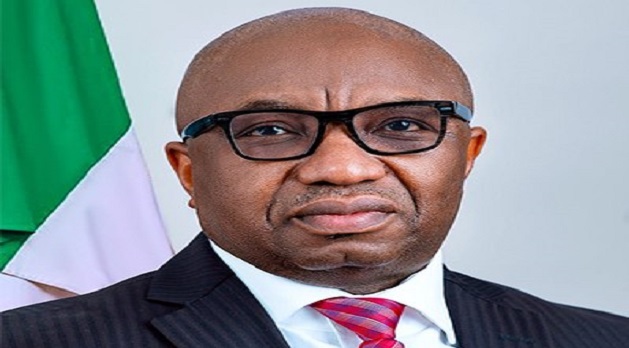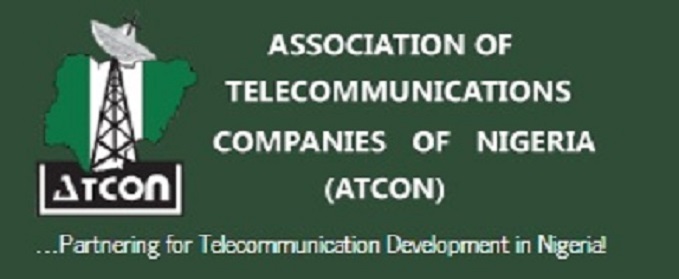Editorial
Still on Poor QoS
It is seven years this August since the introduction of the Digital Mobile Communications services popularly referred to as GSM in Nigeria.
The acceptance and growth rate among the Nigerian populace has had serious and great latent of enhancing the communication. It is still one of the visible gains of the deregulation policy of the federal government.
Today, GSM phones beep in almost every palm, pocket, handbags, offices, parties, school hostels, beer parlors, every nook and cranny of the country.
Aside the availability of telephony, the revolution also ended the monopoly enjoyed by Nitel and introduced competition by the various operators.
Quality of service has not however kept pace with the burgeoning development in the telecom industry. It is much worse now than seven years ago when the revolution began.
There are still complaints of bills for undelivered messages, charge for dropped calls which increase the revenues operators but leave deep holes in the pockets of subscribers.
As a matter of fact, all the telecom operators exhibit grave deficiencies in their service delivery from small to dominant operators.
In clear terms, operators lack capacity to meet the demand of subscribers and they have no apologies for that.
Operators blame high cost of doing business, rising insecurity and widespread cases of theft of their vital equipment and so on for worsening quality of service.
The also point at forced relocation of hundreds of kilometers of fibre optic cables as a result of road works as well as difficult access to sites and community relations troubles.
But little have the operators have shown sign of managing the situation going by the unchecked manner with which they roll out services and promotions in parts of the country, a ploy to raise funds.
The way forward is for government to address the infrastructure challenge and tackle the security challenge.
The Nigerian Communication Commission (NCC) should also supervise the expansion programmes of the operators to ensure that they within their capacity.
Again the apex regulator of the Nigeria communications industry should apply stiffer sanctions on defaulting firms to serve as deterrent.
Ultimately, operators must know that the customer is the subject and object of their networks. They must make their networks subscriber friendly.
Editorial
NDPC Boss Nominated for Global Privacy Assembly’s Giovanni Buttarelli Award 2024

Dr Vincent Olatunji, National Commissioner and Chief Executive Officer of Nigeria Data Protection Commission (NDPC), has been nominated for the Giovanni Buttarelli Award 2024. The award through the Global Privacy Assembly recognises an individual’s outstanding leadership and exceptional efforts in fostering international collaboration.

Dr Vincent Olatunji
This nomination highlights Dr Vincent’s commitment to driving innovation, expanding global partnerships, and promoting a collaborative approach within the data privacy and protection ecosystem.
Under the visionary leadership of Dr Vincent, the Data Privacy ecosystem in Nigeria has witnessed a remarkable growth through key milestones such as deepening the knowledge of data protection and privacy in all public and private institutions, judicial recognition of adequacy principle in cross-border data transfer, playing key roles in regional and global data privacy ecosystem, commencement of bilateral cooperation with other jurisdictions, licensing of data protection compliance organisations, commencement of national data protection certification process, among others.
Dr Vincent’s strategic and innovative initiatives has been instrumental in forging strong international partnerships, driving sustainable growth, fostering a culture of collaboration which has not only propelled the NDPC to new heights but also set a benchmark for international cooperation and industry standards.
The Giovanni Buttarelli Award celebrates leaders who have demonstrated exceptional leadership and/or promoted collaboration at a regional or international level in the field of data privacy and protection.
Nominees are evaluated based on their contributions to projects that has led to the development of innovative concepts or practices, which have significantly impacted the thinking in the international data protection and privacy community, partnerships, and initiatives that enhance global cooperation and development.
In his response to his nomination, Dr Vincent Olatunji expressed his gratitude and emphasised on the importance of collective effort in achieving global progress. “I am deeply honored to be nominated for the Giovanni Buttarelli Award 2024” said Dr Vincent.
“This recognition is a testament to the hard work and dedication of our entire team at NDPC. It underscores the power of collaboration and the remarkable outcomes we can achieve when we work together across borders.
“I am excited to continue our journey, driving innovation and fostering partnerships that make a positive impact globally,” he said.
Editorial
Telcos Ask NCC to Allow Them Hike Tariff

Telecoms operators including MTN, Airtel and Globacom have pushed for cost-reflective tariff in view of extant economic realities.

This was contained in a statement jointly released by the Association of Licensed Telecom Operators of Nigeria (ALTON) and the Association of Telecommunication Companies of Nigeria (ATCON) on Thursday.
The statement was co-signed by Gbenga Adebayo; chairman, ALTON and Tony Emoekpere, president, ATCON.
The telcos called upon the government to take decisive action in addressing the numerous challenges confronting the telecommunications industry.
The telcos said telecommunications infrastructure development requires substantial investments in network expansion, maintenance, and technology upgrades.
“Despite the adverse economic headwinds, the telecommunications industry remains the only industry yet to review its general service pricing framework upward in the last (11) years, primarily due to regulatory constraints.
“For a fully liberalized and deregulated sector, the current price control mechanism, which is not aligned with economic realities, threatens the industry’s sustainability and can erode investors’ confidence.
“ATCON and ALTON call upon the government to facilitate a constructive dialogue with industry stakeholders to address pricing challenges and establish a framework that balances consumers’ affordability with operators’ financial viability,” the statement partly read.
Regarding the Nigerian Communications Commission (NCC), the telcos also said regulatory neutrality and independence are crucial to ensuring a thriving telecommunications sector.
“Statutory provisions lend credence to this notion, as a lack of an impartial regulator will lead to a failure to maintain public confidence in the objectivity and independence of its decisions,” the statement added.
Editorial
FG Reiterates Commitment to Achieving 17 SDGs

The federal government has reiterated its commitment to achieving all the 17 Sustainable Development Goals (SDGs) to promote economic growth and eliminate poverty in Nigeria.

The Minister of Special Duties and Intergovernmental Affairs, Senator George Akume, gave the assurance at a news conference on Tuesday, in Abuja ahead of the “Inaugural Partnership Economy Summit”, scheduled for September 14 and 15.
According to Akume, the primary purpose of the summit is to diversify the economy, promote rural growth, as well as generate sustainable jobs for the youths.
Achieving this, the minister emphasised on partnership with other stakeholders as it was the responsibility of his ministry to achieve the aim of its mission and the creation.
“The framework for the upcoming summit, guided by the principles of Public Social Private Partnership (PSPP) is being designed to develop, promote a multi-Iayered collaborative socio-economic platform for the government, the business sector as well as the civil society.
“In order to achieve this, President Muhammadu Buhari established the ministry with the mandate to develop and implement policies, programmes and projects for the effective and efficient delivery of the gains of Economic Growth and Recovery Plan,” Akume said.
He said the ministry was also charged with the mandate of collaborating with the private sector to create employment for a large number of Nigerian youths, adding that it is also meant to implement a strategy towards the realisation of the president’s June 12 promise to take 100 million Nigerians out of poverty in 10 years.
“Nigeria is among the countries in the UN that signed a pact to implement the SDGs by 2030, in the words of Ban Ki-Moon, former Secretary-General of UN in 2016.
“Nigeria is not left out in its plan towards achieving the SDGs, and how far has Nigeria gone to achieving the 806 goals is part of the questions that the upcoming summit seeks to address,” Akume explained.
He stated that to tackle the issue of poverty and unemployment, the ministry is in partnership with a number of stakeholders, including the Ministry of Industry, Trade and Investment; and Small and Medium Enterprises Development Agency of Nigeria.
Others are Raw Materials Research and Development Council, National Orientation Agency, Association of Local Government of Nigeria and SDGs Nigeria as well as MYK Psymmons Solutions Limited to come up with achievable solutions to all the challenges.

 E-Financial2 days ago
E-Financial2 days agoKuda Unveils New Wallet for Multiple Currencies

 Telecom2 days ago
Telecom2 days agoTelcos Resume SIM Card Sales after 2-Week Halt

 Telecom2 days ago
Telecom2 days agoNigeria, Others Achieve 84% Adult Mobile Phones Penetration

 E-Business2 days ago
E-Business2 days agoHow AI Alert by Airtel is Transforming Mobile Security in Africa

 E-Business2 days ago
E-Business2 days agoNITDA, API Partner Against Harmful Online Content

 News2 days ago
News2 days agoHorn of Africa Leaders Seek Enhanced Digital Integration for Increased Regional Growth

 Telecom1 day ago
Telecom1 day agoTelcos: How and Why Network Services have Been Poor

 Telecom2 days ago
Telecom2 days agoSophos Secures Leadership Spot in 2025 Gartner Magic Quadrant for Endpoint Protection















